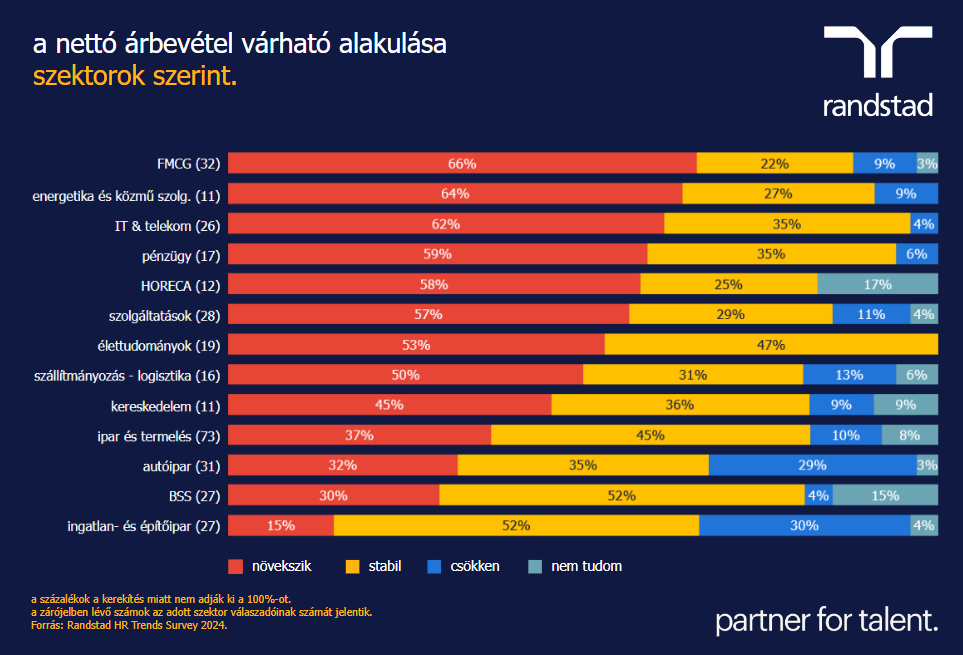Randstad HR Trends 2024: what do domestic companies expect this year?
In its latest research, Randstad assessed the economic expectations with which domestic companies will start 2024. HR Trends 2024 reveals, among other things, whether the more than 350 companies participating in the survey expect growth, what their recruitment plans are and what their biggest HR challenges are.
The majority do not expect growth
More than half of the domestic corporate sector does not expect growth, but they are a little more optimistic about the year 2024 in terms of their business performance, according to Randstad’s 2024 HR Trends research conducted among domestic HR decision-makers and senior managers. Compared to last year, 45% of survey participants expect their company’s net sales to increase by 4% more than last year – but they are still much less optimistic compared to 2022, when 61% of respondents predicted this.
64% of those who think positively envision a growth of 4-10%, but it may easily happen that this does not mean real economic growth, if it will not cover the rate of inflation. Only 26% of the respondents are extremely optimistic about this year, they plan to increase their net sales by more than 11%.
Related news
National Association of Hungarian Labor Agencies: HR service providers can help operate according to the new wage transparency rules
🎧 Hallgasd a cikket: Lejátszás Szünet Folytatás Leállítás Nyelv: Auto…
Read more >Related news
Lamb Days – Gastronomic Adventure is coming again on March 28–29!
🎧 Hallgasd a cikket: Lejátszás Szünet Folytatás Leállítás Nyelv: Auto…
Read more >









